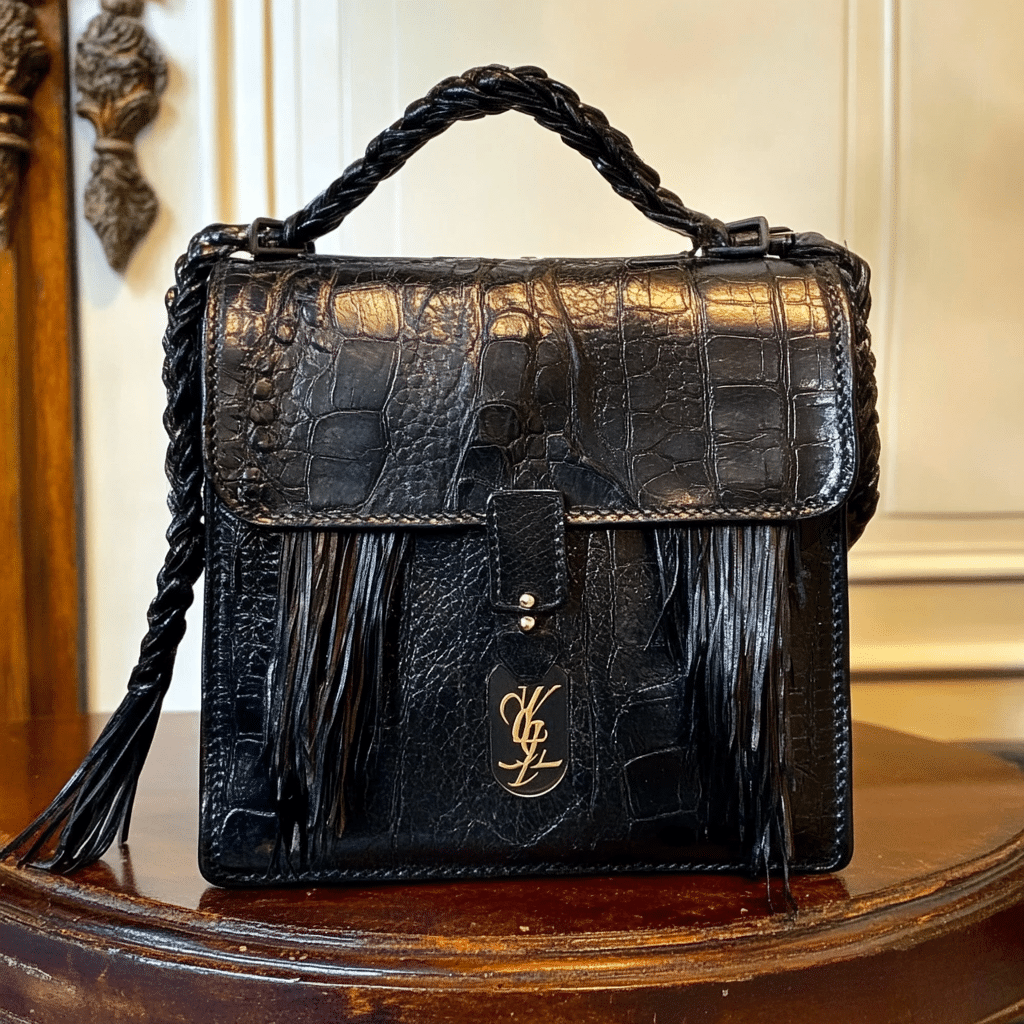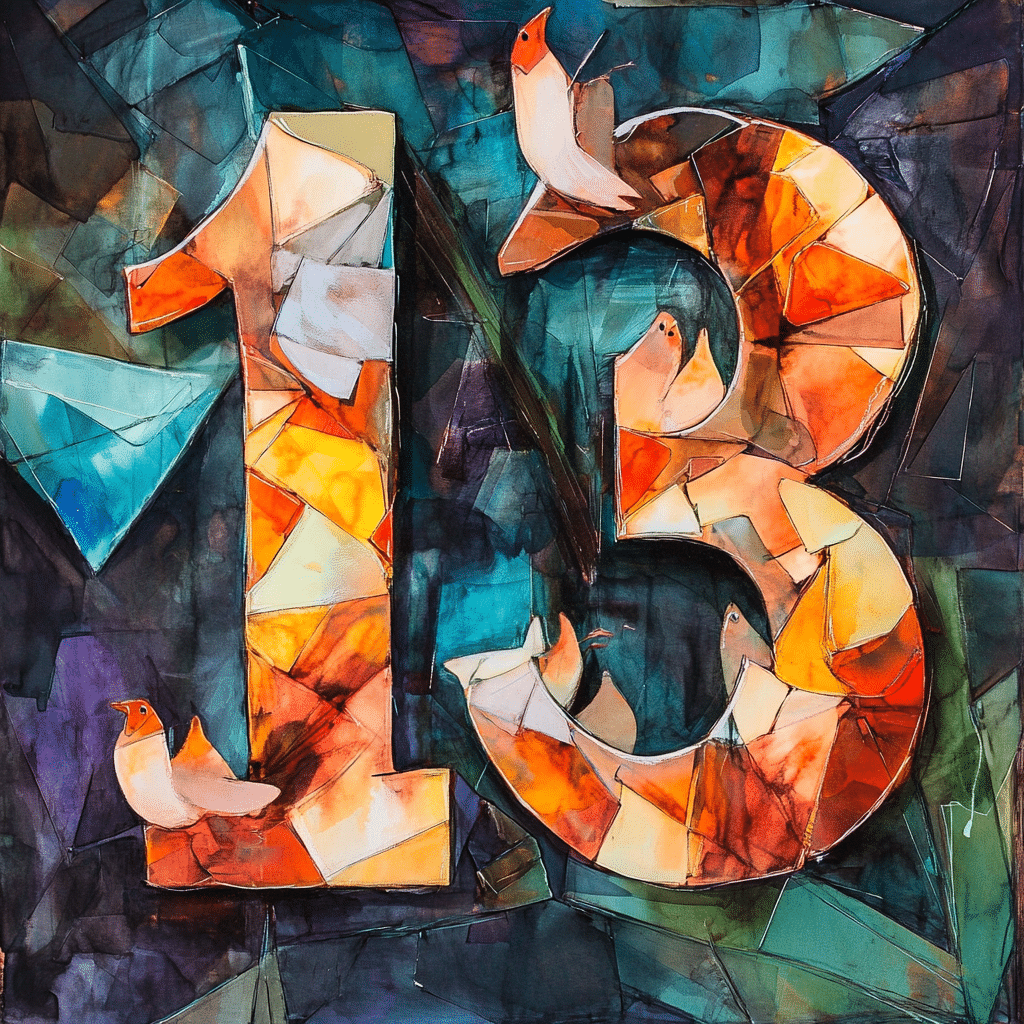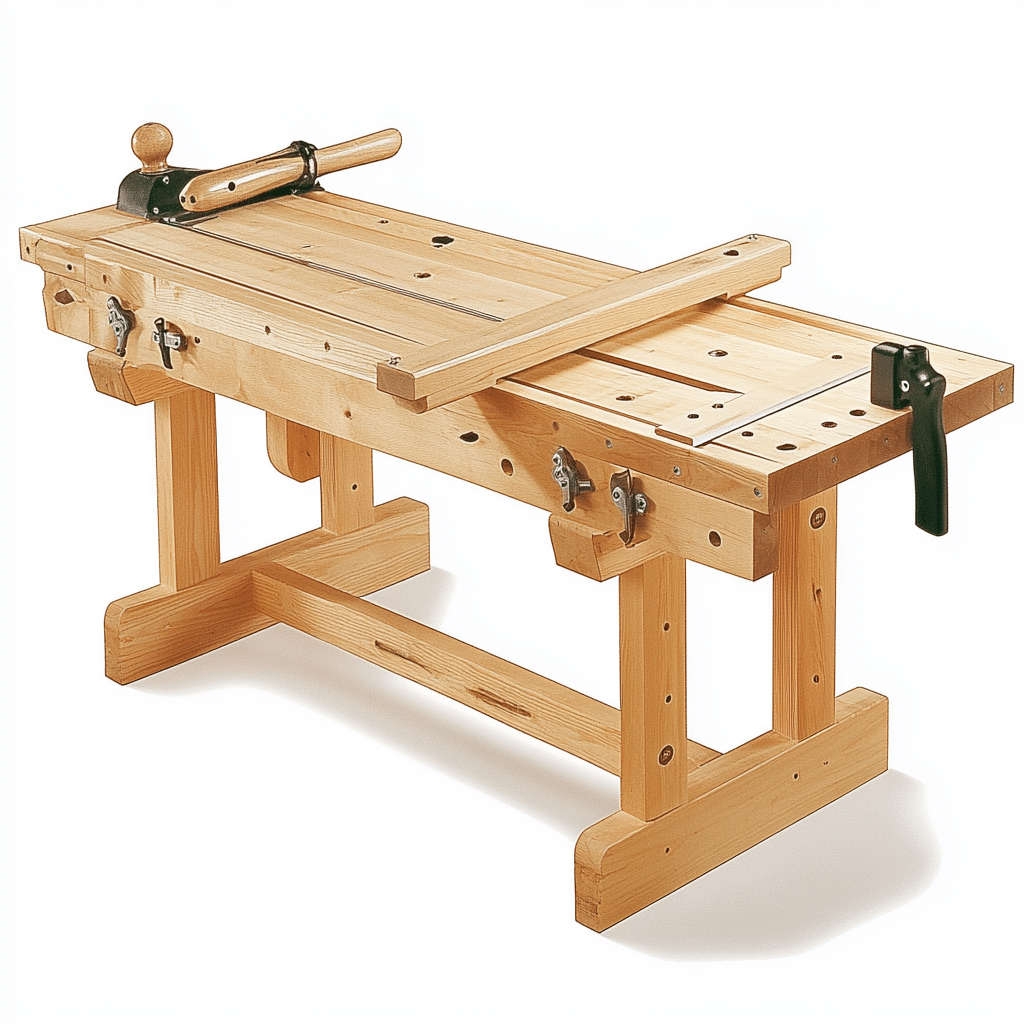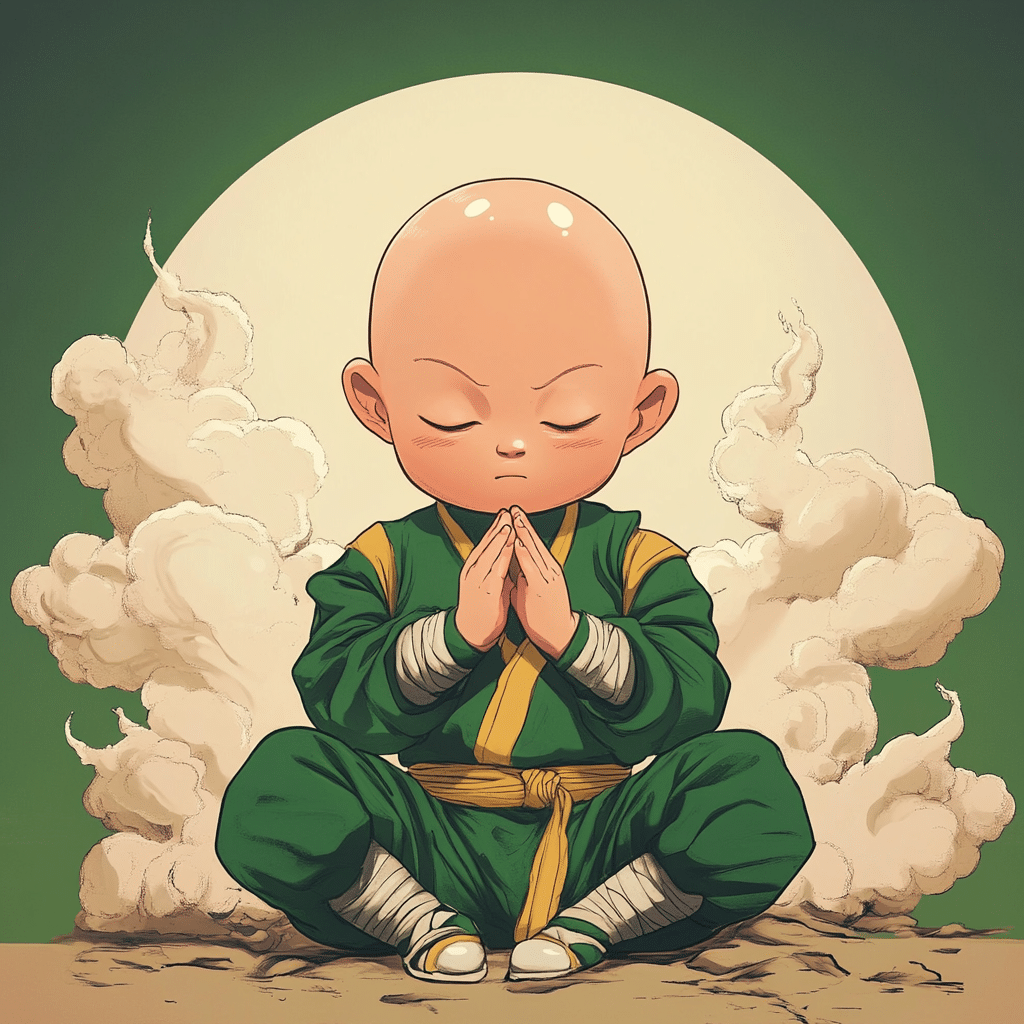Navigating the MBTI Landscape: A Comprehensive Guide
Did you know the MBTI, or Myers-Briggs Type Indicator, has been a compass in the personality landscape for decades? Picture this: In the 1940s, Katharine Cook Briggs and her daughter Isabel Briggs Myers catch inspiration from Carl Jung’s theory of psychological types – and voila! The MBTI was born. But folks, it’s no ordinary quiz you take on a lazy Sunday; the MBTI digs deep, with theoretical roots intertwining psychology and behavior.
Why’s the MBTI still a hot topic? Because, my friends, it echoes the timeless quest to understand ourselves and our cocktail-party comrades, even in our buzz-filled contemporary society. Sure, it’s not without critics tossing in their two cents, claiming it’s as vague as a fortune cookie. Yet, the MBTI dance goes on, continuing to turn heads in the realms of business, relationships, and personal growth.
Gifts Differing Understanding Personality Type
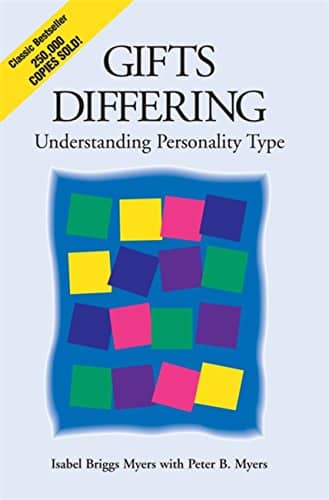
$12.99
“Gifts Differing: Understanding Personality Type” is a seminal book co-authored by Isabel Briggs Myers with Peter B. Myers, which provides an in-depth exploration of the Myers-Briggs Type Indicator (MBTI). Built on the psychological typology theory proposed by Carl Jung, the book delves into the various personality types and the ways in which they influence our perceptions, values, and motivations. Myers elaborates on the unique gifts that each of the 16 personality types brings to the world, advocating for the appreciation and better utilization of these diverse talents. Readers gain insightful tools to recognize and embrace their own type, as well as to understand and value the differences in others.
The book is thorough in its descriptions of the cognitive functions associated with each type, offering a clear framework for understanding the complex interplay between one’s preferences for introversion or extraversion, sensing or intuition, thinking or feeling, and judging or perceiving. Moreover, “Gifts Differing” includes practical advice on how individuals can apply this understanding of type to improve personal relationships, professional engagements, and educational environments. Real-life examples and case studies are provided to demonstrate how type theory can be applied in various contexts, helping readers to navigate both personal growth and social dynamics more effectively.
Not only is “Gifts Differing” an essential read for enthusiasts of personality psychology, but it’s also a valuable resource for professionals in counseling, education, and human resources. Educators can leverage the insights to cater to different learning styles, while employers and managers can use the knowledge to foster team cohesion and enhance workplace productivity. Its accessible writing makes complex concepts easy to grasp and apply, making this book a timeless companion for anyone looking to understand themselves and others at a deeper level.
The Foundations of MBTI Personalities
Buckle up; we’re diving into the MBTI matrix! Ever wondered what the chatter about E’s and I’s and N’s and T’s is all about? Here’s the lowdown:
– Extraversion/Introversion: Where do you get your energy? Party central or the quiet comfort of your nook?
– Sensing/Intuition: How do you apprehend the world? Through tactile, hands-on experience or your trusty sixth sense?
– Thinking/Feeling: Decision-making time – is it logic or your heart calling the shots?
– Judging/Perceiving: Are you the plan-ahead maestro or do you ride the wave as it comes?
The dice roll of these dichotomies gives you one of 16 MBTI types – a recipe of cognitive functions that’s more unique than the toppings on your favorite pizza box.

| MBTI Dimension | Description | Preference Pairs | Sociotypes (16 Personalities) | Notable Traits |
|---|---|---|---|---|
| Energy Focus | Where individuals focus their attention. | Extraversion (E) vs. Introversion (I) | E: ESTJ, ENTJ, ESFJ, ENFJ, ESTP, ESFP, ENTP, ENFP / I: ISTJ, ISFJ, INTJ, INFJ, ISTP, ISFP, INTP, INFP | E: Outgoing, energetic / I: Reflective, reserved |
| Information Processing | How individuals absorb information. | Sensing (S) vs. Intuition (N) | S: ESTJ, ESFJ, ISTJ, ISFJ, ESTP, ESFP, ISTP, ISFP / N: ENTJ, ENFJ, INTJ, INFJ, ENTP, ENFP, INTP, INFP | S: Practical, detail-oriented / N: Abstract, imaginative |
| Decision Making | How individuals make decisions. | Thinking (T) vs. Feeling (F) | T: ESTJ, ENTJ, ISTJ, INTJ, ESTP, ENTP, ISTP, INTP / F: ESFJ, ENFJ, ISFJ, INFJ, ESFP, ENFP, ISFP, INFP | T: Logical, objective / F: Empathetic, values-oriented |
| Lifestyle | How individuals interact with the external world. | Judging (J) vs. Perceiving (P) | J: ESTJ, ENTJ, ESFJ, ENFJ, ISTJ, ISFJ, INTJ, INFJ / P: ESTP, ESFP, ENTP, ENFP, ISTP, ISFP, INTP, INFP | J: Structured, decisive / P: Flexible, adaptable |
| INFJ Rarity | INFJ is considered the rarest personality type. | – | INFJ | Approximately 1.5% of the U.S. population |
| INTJ & INTP Intelligence | INTJs and INTPs are among the “smartest,” often gravitating towards engineering and mathematics. | – | INTJ, INTP | Strong analytical and strategic thinking |
| INTJ Success Oriented | INTJs are seen as successful due to their analytical and observant nature. | – | INTJ | Applies big picture thinking to achieve goals |
| MBTI® Assessment | Instrument designed to help understand personal and others’ personality differences. | – | – | Applicable for personal growth and team dynamics |
Deep Dive into the 16 MBTI Profiles
Sixteen personality flavors, each with its special zing. From the bold ENTJs to the free-spirited INFPs, there’s a spectrum of amazing traits and quirks for all.
Take the INFJ – rare as a Jane fonda young photograph, these folks are the Yodas of empathy, but even they’ve got areas to sprout. And let’s not forget the INTJs – these masterminds could probably teach Einstein a thing or two. Every MBTI type, with its magic and growth spots, has its champions, finding success in ways as varied as the best rap Songs Of all time.
MBTI in the Workplace: A Tool for Better Team Dynamics
Imagine your team moving like a well-oiled machine. That’s the MBTI at work. Whether it’s the go-getter ENTJ leading the charge or the thoughtful ISFJ keeping the peace, understanding each other’s MBTI types is like unlocking a cheat code for team synergy. Heard about that group that hiked productivity through the roof after an MBTI workshop? It ain’t fiction – those case studies exist and they’re as real as the sweat on a wrestler’s brow on Trackwrestling.
Strategies abound, using MBTI insights for everything from hiring to resolving the office tiff. And hey, better communication means less time decoding cryptic emails and more time soaring to new heights.
You Being more effective in your MBTI Type
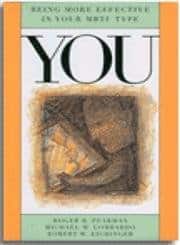
$31.18
Unlock your full potential with “You: Being More Effective in Your MBTI Type,” the transformative guide designed to help individuals leverage their Myers-Briggs Type Indicator (MBTI) for increased effectiveness in personal and professional realms. This comprehensive resource delves deep into the unique characteristics of each of the 16 personality types, providing tailored strategies to help you understand and harness your innate strengths. Whether you’re an INTJ seeking to improve decision-making, or an ESFP aiming to enhance your interpersonal skills, this book offers practical tips and actionable steps to boost your performance.
Through the lens of the MBTI, “You: Being More Effective in Your MBTI Type” offers a fresh perspective on overcoming common challenges associated with your personality type. The book takes you on an insightful journey, exploring how different types process information, make decisions, and interact with the world around them. It equips you with the tools to identify potential blind spots and growth opportunities, enabling a balanced and more effective approach to both your personal and professional endeavours.
Beyond theoretical knowledge, “You: Being More Effective in Your MBTI Type” emphasizes real-world application, featuring case studies and exercises tailored to each type’s distinctive way of operating. It encourages self-reflection, helping readers set achievable goals to foster development in areas that align with their MBTI preferences. By prioritizing self-awareness and adaptability, this guidebook stands as an essential companion for anyone looking to excel by making the most of their MBTI profile.
Embracing Your MBTI Type in Personal Development
Get this: knowing your MBTI is like having a backstage pass to your own show. It’s about leveraging your inbuilt superpowers while giving a nod to the areas ripe for a glow-up.
Need a hand in the relationship department? MBTI‘s got your back, offering a roadmap to more harmonious bonds. Just remember, folks, it’s a guide, not gospel. Squeeze the juice out of your type, but remain as adaptable as the screen roles of Laura haddock.
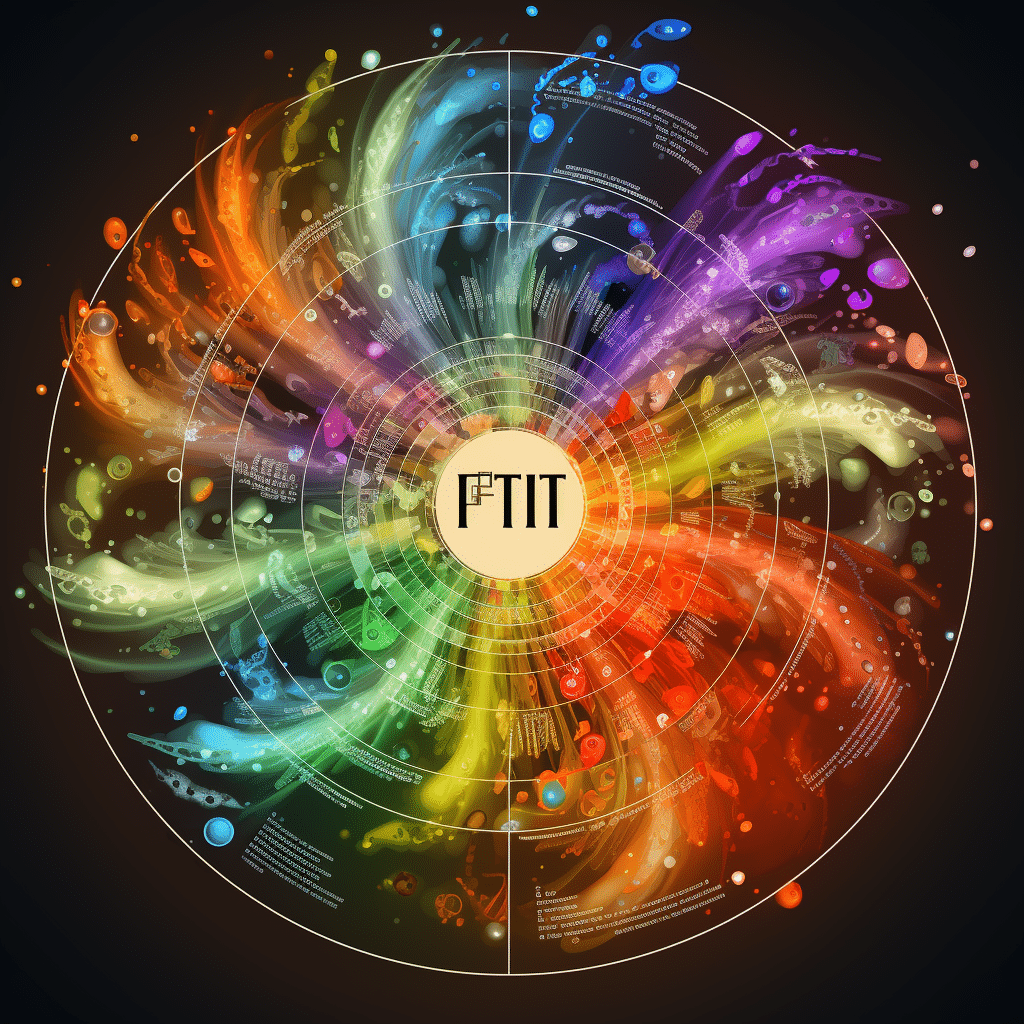
Beyond the Letter Codes: Nuanced Perspectives on MBTI Types
Now, let’s shake up the box of MBTI stereotypes. No type is cut-and-dry; we’ve got shades of grey in every color of the personality rainbow. So, while your code paints a picture, it’s not the whole gallery.
Picture this: an ESTJ breaking free from the bossy stereotype and showcasing a softer, empathetic stroke – or an INFP strategist making moves that would impress any chess grandmaster. We flow and adapt, blending our MBTI traits with the canvas of life’s diverse moments.
Charting Your MBTI Journey: Steps to Identify Your Personality Type
Feeling the pull to unearth your MBTI gold? Step up and discover your unique type with the official MBTI assessment, equipped with feedback from a wizard, er, certified practitioner. This isn’t a test where you pass or flunk; it’s about finding the fit that sings to your tune.
Once you’ve got your results, it’s time to make some music. Reflect, experiment with the insights, and don’t be shy to strut your type with confidence and a dash of humility.
MBTIãæï¼åæç使ç¨èªªææ¸ââéªåç»çµ¦å人åï¼æ¾å°æèæçèªå·± (Traditional Chinese Edition)

$9.76
MBTI æï¼åæç使ç¨èªææ¸ (My MBTI and My User Manual) – Traditional Chinese Edition is a unique guide tailored for individuals who wish to understand themselves through the lens of the Myers-Briggs Type Indicator (MBTI). Authored by snow, this enlightening book acts as a personal user manual, offering insights and practical tips that help readers navigate life’s challenges with the wisdom of MBTI personality typing. Each chapter delves into different aspects of personality, such as communication preferences, decision-making processes, and stress managementâall depicted through the precise and culturally resonant language of Traditional Chinese.
The book facilitates a journey of self-discovery, encouraging readers to explore the intricacies of their MBTI type in a meaningful and engaging way. It encompasses detailed descriptions and analyses of each of the 16 MBTI personality types, providing readers with a comprehensive understanding of their strengths, blind spots, and potential growth areas. With its focus on self-awareness, the book is an invaluable resource for anyone seeking to enhance personal and professional relationships, optimize their performance, and achieve a deeper sense of contentment with their true self.
éªåç»çµ¦å人å (Xueli Dedication to Type People) adds a personal touch, underscoring the author’s commitment to helping readers find their most comfortable selves through the MBTI framework. Rich in anecdotes and real-life examples, the book is not just a manual but a companion for those on the path to self-acceptance. It empowers readers to apply MBTI theory in everyday situations, fostering a life lived with greater understanding and empathy. With this Traditional Chinese Edition, speakers of the language can experience the benefits of MBTI in a format that resonates with their cultural context, making the journey toward personal mastery both accessible and enjoyable.
Future Frontiers of MBTI Research and Applications
We ain’t done yet; the MBTI adventure is charging into the future, making friends with cutting-edge tech. Researchers are already cozying up with AI to give the MBTI a spit-shine for tomorrow’s world. Imagine a future where personality insights blend seamlessly with the digital landscape, further unlocking human potential.
As we ride this wave of innovation, the MBTI promises to only get sharper, more intuitive, and yes, even more indispensable.
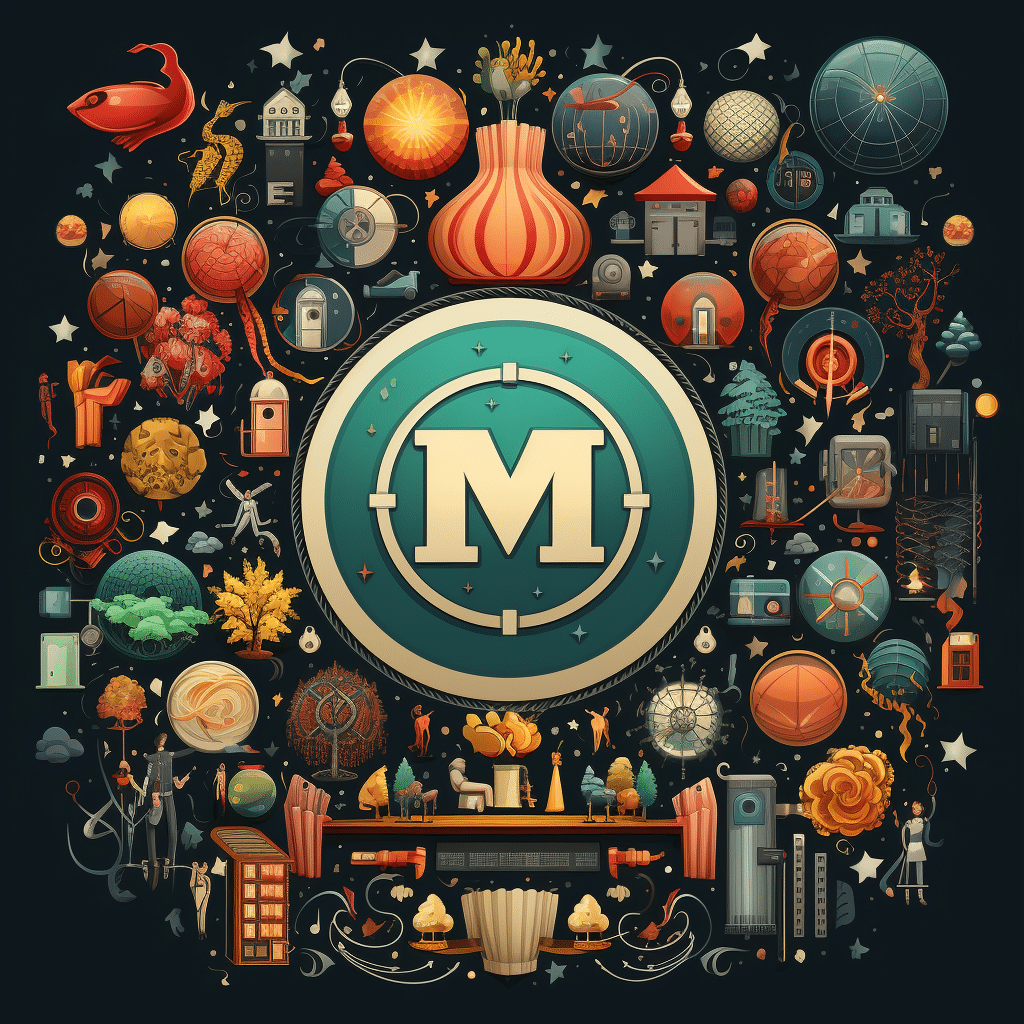
Embracing the Symphony of MBTI Personalities
In the end, the MBTI doesn’t just decode us; it celebrates the symphony of humankind’s various chords and melodies. Here’s to appreciating each other’s unique compositions, to learning from every contrasting note, and to embracing this journey of self-discovery and shared harmony.
So, dear reader, ready to find your place in the MBTI orchestra? There’s a seat with your name, and the world’s all ears for your personal symphony. Here at Reactor Magazine, we’re rooting for every entrepreneur to shine in their authentic quality, and MBTI is a beacon in that pursuit, lighting the path to profound personal and professional fulfillment.
Your Secret Self Understanding yourself and others using the Myers Briggs personality test (The MBTI Personality Types Series Book )
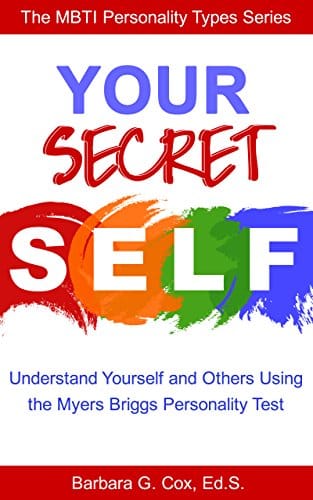
$4.99
“Your Secret Self: Understanding Yourself and Others Using the Myers Briggs Personality Test” is a thought-provoking addition to The MBTI Personality Types Series that provides readers with an extensive guide to self-discovery and interpersonal relationships through the lens of the Myers-Briggs Type Indicator. With expertly crafted prose, the book delves into the foundational aspects of the MBTI, enlightening readers on the theory’s origins and the significance of its four dichotomies: Introversion vs. Extroversion, Sensing vs. Intuition, Thinking vs. Feeling, and Judging vs. Perceiving. Each chapter is dedicated to one of the 16 personality types, offering detailed descriptions that illuminate the unique strengths, weaknesses, and potential growth areas for individuals.
The author skillfully guides readers on a journey through the intricacies of their inner workings, using relatable examples and practical exercises that encourage introspection and self-awareness. Alongside personal development, “Your Secret Self” is an indispensable tool for enhancing communication and empathy, allowing readers to better understand the behaviors and motivations of those around them. Readers will appreciate the careful attention paid to the practical applications of MBTI in various aspects of life, including career choices, relationship dynamics, and conflict resolution.
Your Secret Self serves not only as a primer into the world of psychological types but also as an ongoing reference for those wishing to navigate the complexities of personality in everyday interactions. By the conclusion of the book, readers will have gained a more profound appreciation for the diversity of human personality and the power that comes from embracing both their own and others’ secret selves. Whether you are a newcomer to the concept of personality typing or a seasoned aficionado, this book is an essential read for anyone looking to enhance their self-awareness and forge stronger, more understanding relationships in all facets of life.
What every MBTI means?
What every MBTI means?
Oh boy, MBTI, short for Myers-Briggs Type Indicator, is like a secret code for understanding personalities. Each type is a combo of four letters, each standing for different traits: Introversion (I) or Extraversion (E), Sensing (S) or Intuition (N), Thinking (T) or Feeling (F), and Judging (J) or Perceiving (P). So, it’s kinda like a personality recipe that tells you how you perceive the world and make decisions. Nifty, right?
Is there a test for MBTI?
Is there a test for MBTI?
You betcha! There’s an official MBTI test you can take, typically with a certified professional or online. It’s like a mini-quest to discover your personality’s secret sauce. Just answer some questions, and voilà, your MBTI type is served! Remember, though, a grain of salt might help since not all tests are created equal.
What are the 16 personalities called?
What are the 16 personalities called?
The 16 personalities are like the Avengers of psych. Each has its own tag, from the duty-fulfiller ISTJ to the charismatic ENFP. They’re more formally known as MBTI types—each a mix of traits that shape how folks interact with the world. It’s like a zoo of personalities, and everyone’s invited!
What’s the rarest MBTI?
What’s the rarest MBTI?
INFJ, hands down, is the unicorn of MBTI types, making up a teensy slice of the population. Known as the Advocate—or sometimes the Mystic—these folks are walking paradoxes. They’re quite the rare birds with a special blend of creativity and idealism that’s hard to spot in the wild.
What are the 5 rarest MBTI types?
What are the 5 rarest MBTI types?
Ready for a roll call of the personality VIPs? Here they are: INFJ, ENTJ, INTJ, ENFJ, and INTP. These guys are the rare gems in the personality mine, each with their sparkle making them stand out. Don’t go on a safari looking for them; they’re too busy being unique!
What does F stand for in MBTI?
What does F stand for in MBTI?
The “F” in MBTI stands for Feeling, and it’s not about being all mushy. It’s about folks who make decisions based on their hearts, values, and people stuff, rather than cold hard logic. They’re like the warm, fuzzy blankets of the personality world—cozy and comforting!
Why MBTI is so popular?
Why MBTI is so popular?
Okay, so why is MBTI the talk of the town? Simple: People love figuring out “Who am I?” and “Why do I do those wacky things?” It’s like personality bingo—it’s fun, gives us “Aha!” moments, and makes us feel part of a tribe. Plus, it’s a great icebreaker at parties, no doubt!
What do psychologists think of MBTI?
What do psychologists think of MBTI?
Psychologists are a mixed bag on MBTI. Some give it a thumbs-up for helping folks in the real world, like with team-building and career guidance. Meanwhile, others are kinda side-eyeing it, saying it lacks scientific rigidity and is too boxy to capture complex human behavior. So, it’s a bit of a pickle!
What are the disadvantages of MBTI?
What are the disadvantages of MBTI?
The downside of MBTI? Well, it might squeeze people into boxes like sardines, missing out on all the quirks and fluidity of human personalities. Some say it’s more horoscope than science and worry that it’s not the best tool for hiring or, heavens forbid, labeling people. Remember, we’re all snowflakes—unique and evolving!
What are the 4 major personalities?
What are the 4 major personalities?
Ah, the big four! According to some personality theories, they’re the sanguine (party animals), choleric (bossy boots), melancholic (thoughtful brooders), and phlegmatic (chill cucumbers). They’re like the basic flavors on the personality palate, mixing and matching to cook up your unique vibe.
What is the most common MBTI type?
What is the most common MBTI type?
The trophy for the most common MBTI type goes to ISFJ, The Defender. These folks are like the unsung heroes, lending a hand everywhere and keeping the wheels greased. They’re the salt of the earth, known for their dependability and warmth.
What personality type is hard to read?
What personality type is hard to read?
INTJs, take a bow. Known as The Strategist, they’re the poker-faced enigmas of the MBTI world, often leaving folks scratching their heads trying to figure them out. They’re as mysterious as a locked diary, blending deep thinking with a dash of aloofness.
Which MBTI is most likely to have ADHD?
Which MBTI is most likely to have ADHD?
Rumor has it, the flashy, spontaneous ENFPs might have the edge when it comes to ADHD. With their love for new experiences and occasional squirrel moments, they could be prone to the ol’ scattered brains scenario. But hey, diagnosis is a doc’s job, so let’s not jump the gun!
What is the most narcissistic MBTI?
What is the most narcissistic MBTI?
Playing armchair psychologist, huh? Well, it’s suggested that ENTJs, with their love for leadership and big ambitions, might tip the scales towards narcissism. But, painting them all with the same brush isn’t fair; it’s more about the individual than the type. Not all glitters is gold, after all!
Which MBTI is the least successful?
Which MBTI is the least successful?
Whoa there, let’s not point fingers! Any type can be successful, and idea of success varies like flavors at an ice cream shop. Though, stereotypes might say ISFPs could struggle with traditional success paths due to their free-spirited nature. But hey, success is in the eye of the beholder!
Why is INFJ so rare?
Why is INFJ so rare?
The INFJ mystery—why so scarce? Could be their unique mix of insight and empathy is a rare breed. They’re like four-leaf clovers in a field of grass; it’s not their game to be front and center. So when you find one, consider yourself lucky—it’s like winning personality bingo!
What are the top 10 rarest MBTI types?
What are the top 10 rarest MBTI types?
Drum roll, please! Here’s the VIP list: INFJ, ENTJ, INTJ, ENFJ, INTP, ENTP, INTJ, ISTP, ISFP, and ESTP. These folks might not be crowding the room, but when they do show up, they bring a unique spin to the table that makes ’em stand out.
What does INTP stand for?
What does INTP stand for?
INTP is the geek chic of the personality world. The initials stand for Introverted, Intuitive, Thinking, Perceiving—basically, the wizards deep in thought, cooking up theories and sometimes forgetting to come back to planet Earth. They’re the architects of big ideas and loving the brainy journey!
Which MBTI is most common?
Which MBTI is most common?
Drum roll, please—ISFJ bags the title of most common personality type! Known for their caring and supportive nature, these folks are like your best friend, always there when you need a shoulder. They’re as common as smartphones, and just as handy to have around!


